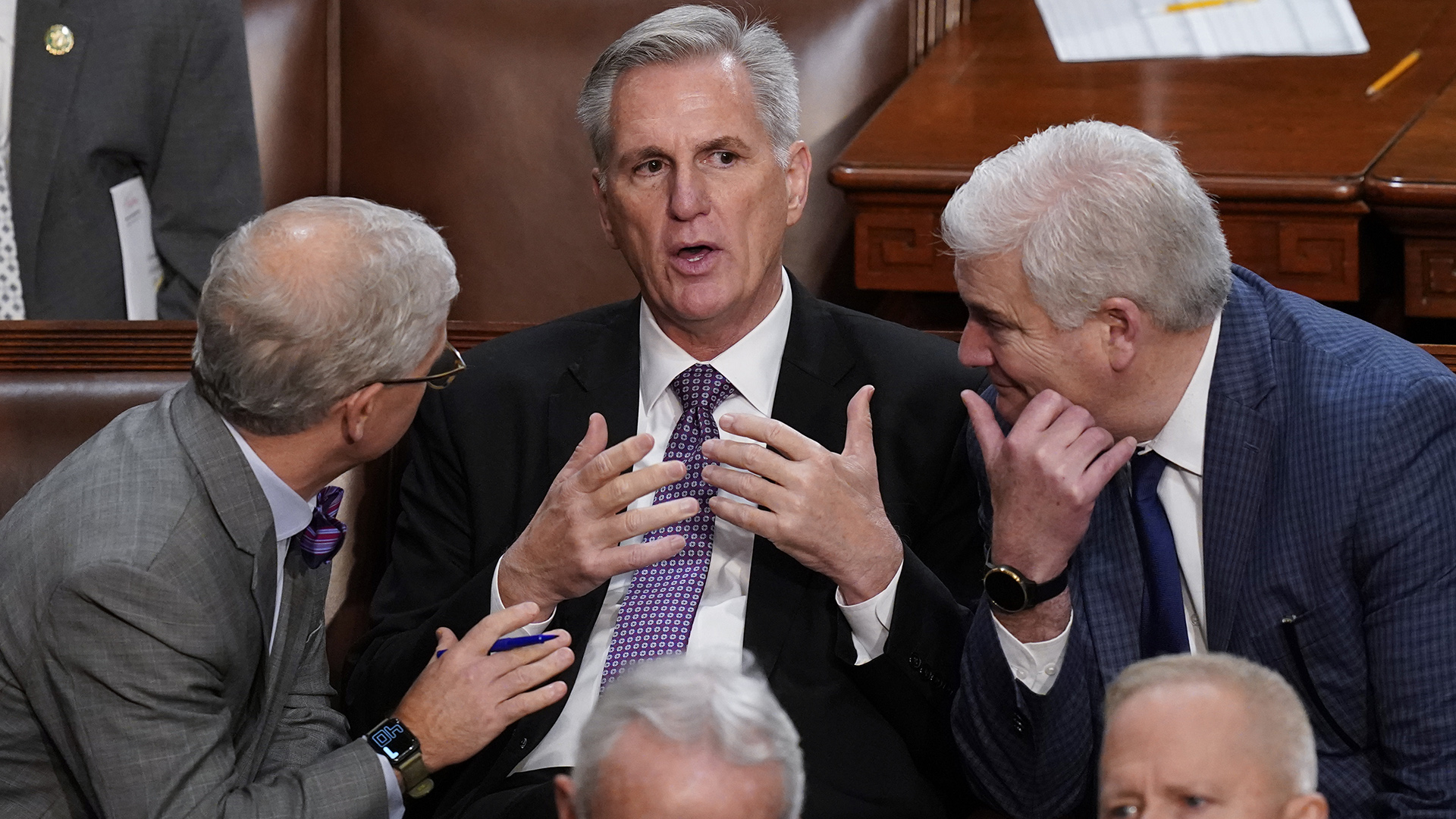

With President Joe Biden set to release his fiscal 2024 budget in early March, Republicans in the House of Representatives may be headed for a civil war over an issue that has traditionally unified conservative lawmakers: defense spending.
As part of efforts to balance the federal budget, some Republican lawmakers would like to cap all discretionary spending – money that does not fund entitlement programs that Congress must approve every year – at fiscal 2022 levels, Fox News reported last month.
Rep. Jim Jordan (R-Ohio) told Fox News in January that he is open to cutting defense spending to balance the budget, arguing in favor of “getting rid of all the woke policies in our military” to save money. Jordan’s spokesperson did not respond to several requests for comment from Task & Purpose.
Other Republican lawmakers, however, have voiced concerns about any plan to potential balance the budget that involves reducing funding for the U.S. military.
Subscribe to Task & Purpose Today. Get the latest military news, entertainment, and gear in your inbox daily.
“We have a duty to protect taxpayer dollars to reduce our debt and deficit – but this must not come at the expense of compromising our military strength and readiness,” Rep. Rob Wittman (R-Va.) told Task & Purpose. “I will work with my colleagues to find savings at the Pentagon, but we absolutely cannot shy away from robust investments needed for our national security and defense capabilities.”
It is unclear what, exactly, Republican lawmakers plan to do to reduce the budget. In exchange for their support for his bid to become House Speaker, Rep. Kevin McCarthy (R-Calif.) reached an agreement with some Republican lawmakers in January to cap fiscal 2024 discretionary spending at fiscal 2022 levels, but that does not necessarily entail defense spending cuts, a person familiar with the Republican negotiations told Task & Purpose.
Rep. Chip Roy (R-Texas) tweeted last month that lawmakers never discussed cuts to defense spending during their negotiations with McCarthy.
“In fact, there was broad agreement spending cuts should focus on NON-DEFENSE discretionary spending,” Roy tweeted on Jan. 8.
McCarthy’s spokesperson did not respond to repeated requests for comment from Task & Purpose.
At issue is whether House Republicans will ultimately exclude defense spending from any effort to reduce discretionary spending to fiscal 2022 levels.
For this fiscal year, Congress has appropriated $858 billion for all national defense spending,including the Pentagon. That compares with the $796 billion that lawmakers appropriated for national defense in fiscal 2022.
National defense spending would have to grow to $875 billion in fiscal 2024 to keep pace with the forecasted 2% rate of inflation, said Travis Sharp, a fellow with the Center for Strategic and Budgetary Assessments think tank in Washington, D.C
That means rolling defense spending levels back to fiscal 2022 levels would result in a $79 billion cut for the Pentagon and other agencies involved with national defense.

If Congress reduced defense spending to fiscal 2022 levels and also capped all defense spending so that it only grew at the rate of inflation for the next 10 years – as lawmakers did in the last decade under the Budget Control Act of 2011 – then it would cut a total of $866 billion from national defense, Sharp said.
He also said that eliminating funding for programs that some Republican lawmakers have described as “woke” would only cut a fraction of defense spending. For this fiscal year, the Defense Department requested $86.5 million on diversity, equity and inclusion efforts.Over 10 years, the U.S. military would save $865 million by not funding such efforts – less than 1% of the $866 billion in total cuts to defense spending, he said.
In order to cut that much money out of its budget, the Pentagon would have to cut the number of U.S. service members serving in the military branches as well as reduce spending on operations and maintenance and buying new weapons systems, Sharp said.
The last time the military was forced to make such cuts, disaster ensued. In 2013, Congress’ inability to reach an agreement on taxes and spending led to forced cuts in defense spending called sequestration, followed by budget caps for the next several years. As the military services separated trained maintainers and cut funding for training and spare parts, military aviation saw a spike in accidents, crashes, and deaths.
All of this means that any attempt by some House Republicans to reduce defense spending will likely become a contentious affair.
“I’m in favor of identifying wasteful programs within the DOD but we cannot propose broad spending cuts on the backs of our troops as the Chinese Communist Party conducts a massive military buildup,” Rep. Mike Waltz (R-Fla.) told Task & Purpose.
Rep. Doug Lamborn (R-Colo.) echoed the sentiment that the world is too dangerous right now for Congress to cut funding for the U.S. military.
“I cannot support an artificial cut or cap to our defense spending,” Lamborn told Task & Purpose. “Instead, I am in favor of a responsible defense budget that strengthens our military while making responsible use of taxpayer dollars. As China, Russia, Iran, and North Korea become increasingly emboldened, now is not the moment to back down.”
The latest on Task & Purpose
- Marine shown fighting with San Diego hotel staff in viral video charged with assault and battery
- Air Force cadet died of blood clot in lung, autopsy finds
- Airmen prepare to bid farewell to beloved ‘Big Sexy’ refueling tanker after 30 years of service
- The US appears to have used its missile full of swords in an airstrike in Yemen
- What the chances of a war between the US and China actually look like, according to experts
Want to write for Task & Purpose? Click here.
